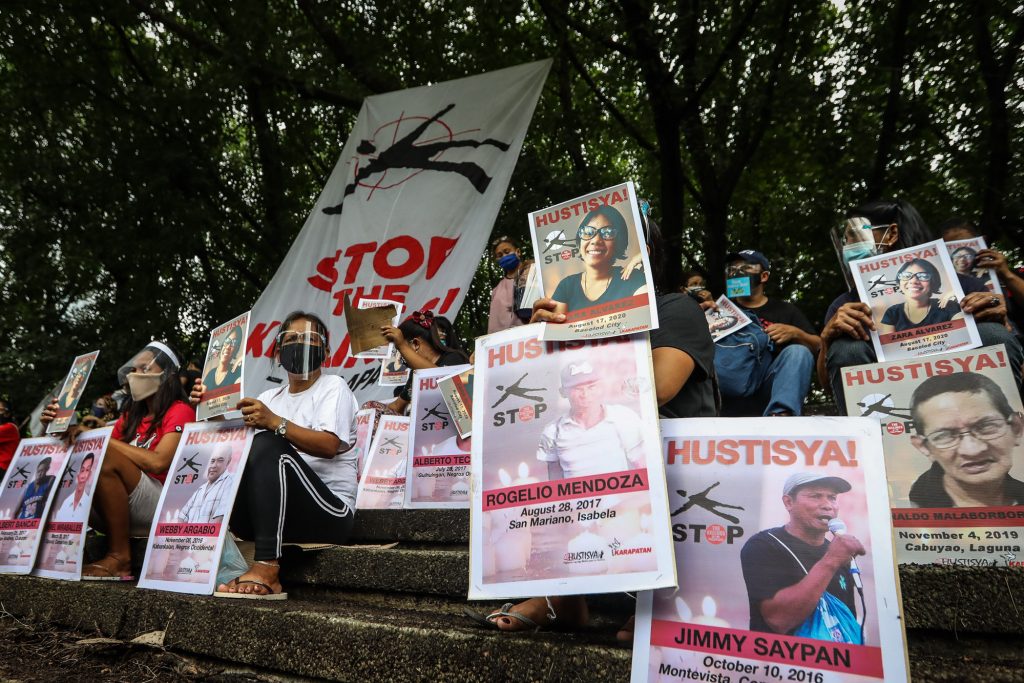
A loud bang woke Analyn Giganto about four o’clock in the morning of December 30. Then she heard people shouting.
“Assault! Assault!”
She got out of bed and tried to understand what was going on. Suddenly, beams of light and the tips of the barrels of guns were pointed at her. Armed men entered the room.
Analyn embraced hugged husband, Roy, as the men tried to grab him. One man wrestled with her and forced her away. She struggled not to let go.
“If my husband did something wrong, then charge him and take him to the courts, not like this,” she said. But she got no response from the men.
Analyn refused to leave her husband. Her shirt was ripped as she struggled with the armed men.
She was staring straight at her husband who was kneeling on the floor with guns pointed at him when two gunshots tore the silence of the early morning.
Roy fell on the floor. The men kicked Analyn out of the house.
The Philippine National Police later announced that eight communist rebels were killed and 17 others were arrested during the early morning raids in the villages of Tapaz town in Capiz province and Calinog town in Iloilo.
The police action was backed by 28 court issued search warrants for the residences of activists and farmers who were known to be critical of the government.
The villagers, most of whom belong to the Tumanduk tribe, have been opposing a dam project that they claim has been encroaching into their ancestral land.
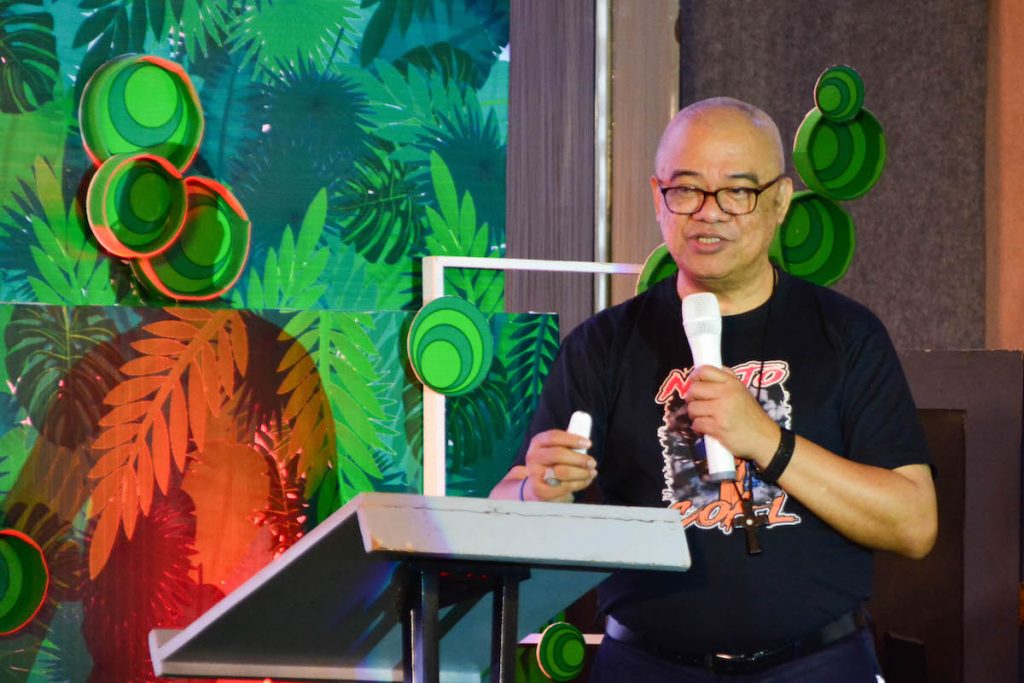
Bishop Gerardo Alminaza of San Carlos diocese said the killings were a “continuation” of the “mass killings and arrests” of other activists in the central Philippines in recent months.
He said the “massacre” of the Tumandok people “disturbingly follow(ed) the same pattern” of police and military operations that claimed the lives of poor farmers and other civilians in Negros Island.
The prelate recalled the murder of six people and the arrest of 26 others in the towns of Guihulngan, Mabinay, and Sta. Catalina in Negros Oriental, in December 2018.
In March 2019, 14 farmers who were accused of being communist rebels were also killed during simultaneous police and military operations.
“These operations were carried out mostly during wee hours, and the farmers were shot under unproven claims that they fought it out,” said Bishop Alminaza.
The bishop said that to date, there are at least 106 cases of “unsolved extrajudicial killings” in Negros Island.
“Whether this is true or not, what is starkly apparent is that this violence has failed to bring lasting peace and instead bred a culture of even more violence and disrespect for our people,” said the prelate.
He warned that the killings might spread to other parts of the country if “the roots of the conflict” would not be addressed by “integral development and dialogue.”
Source: Licas Philippines
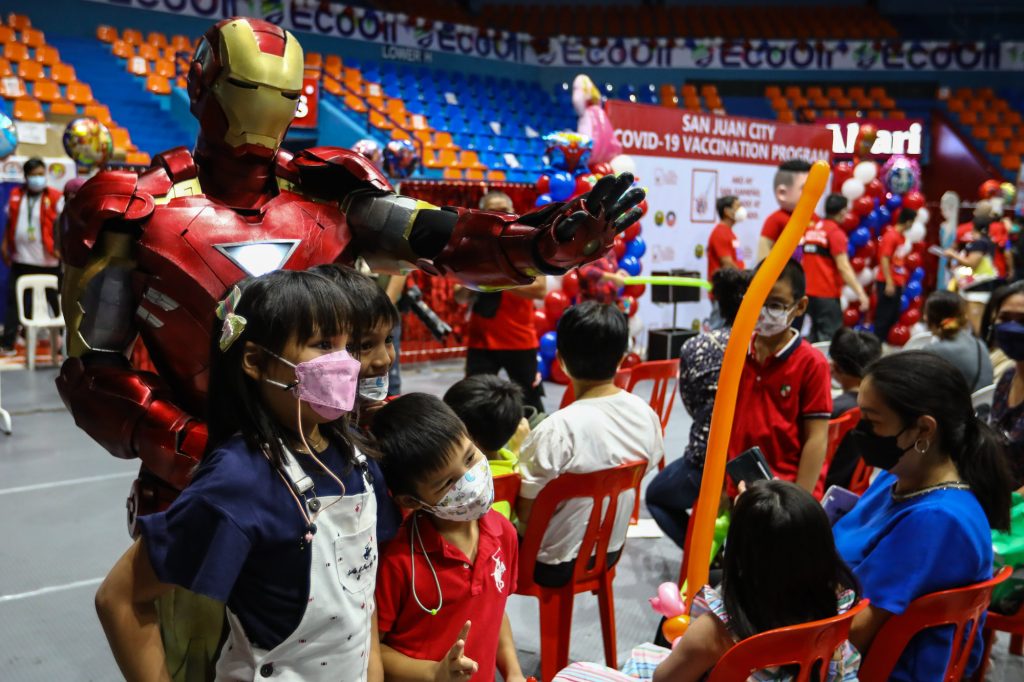
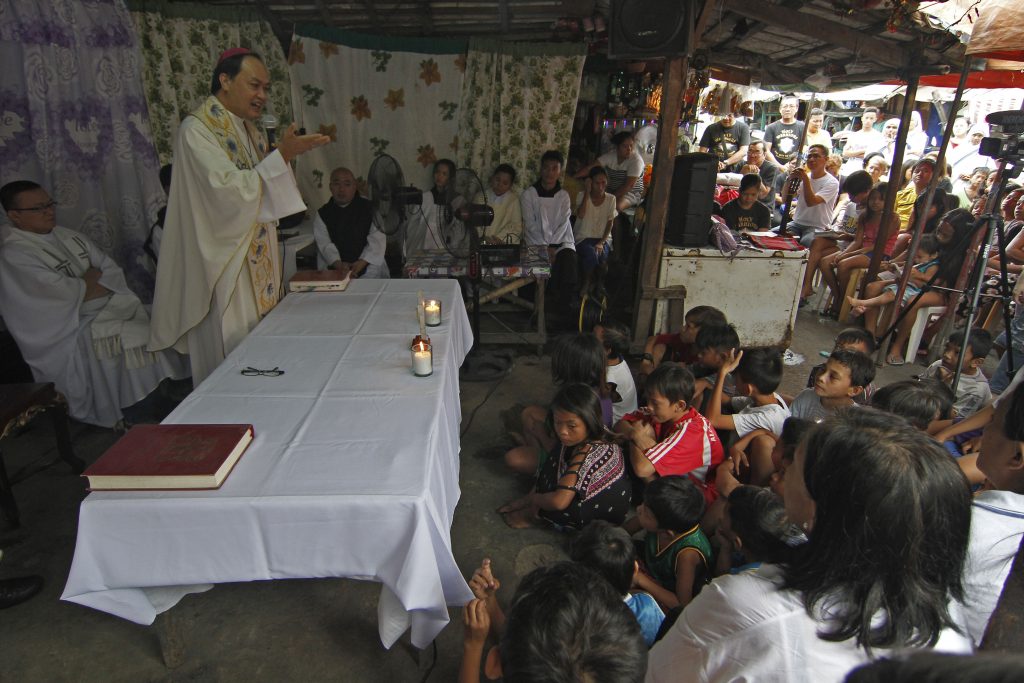
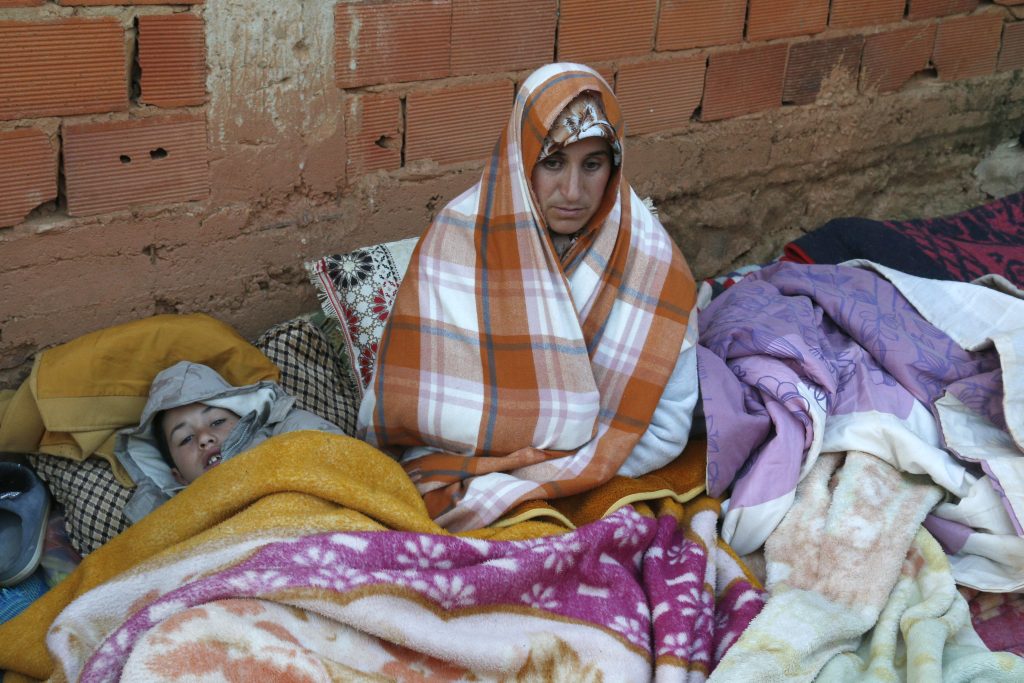



0 Comments